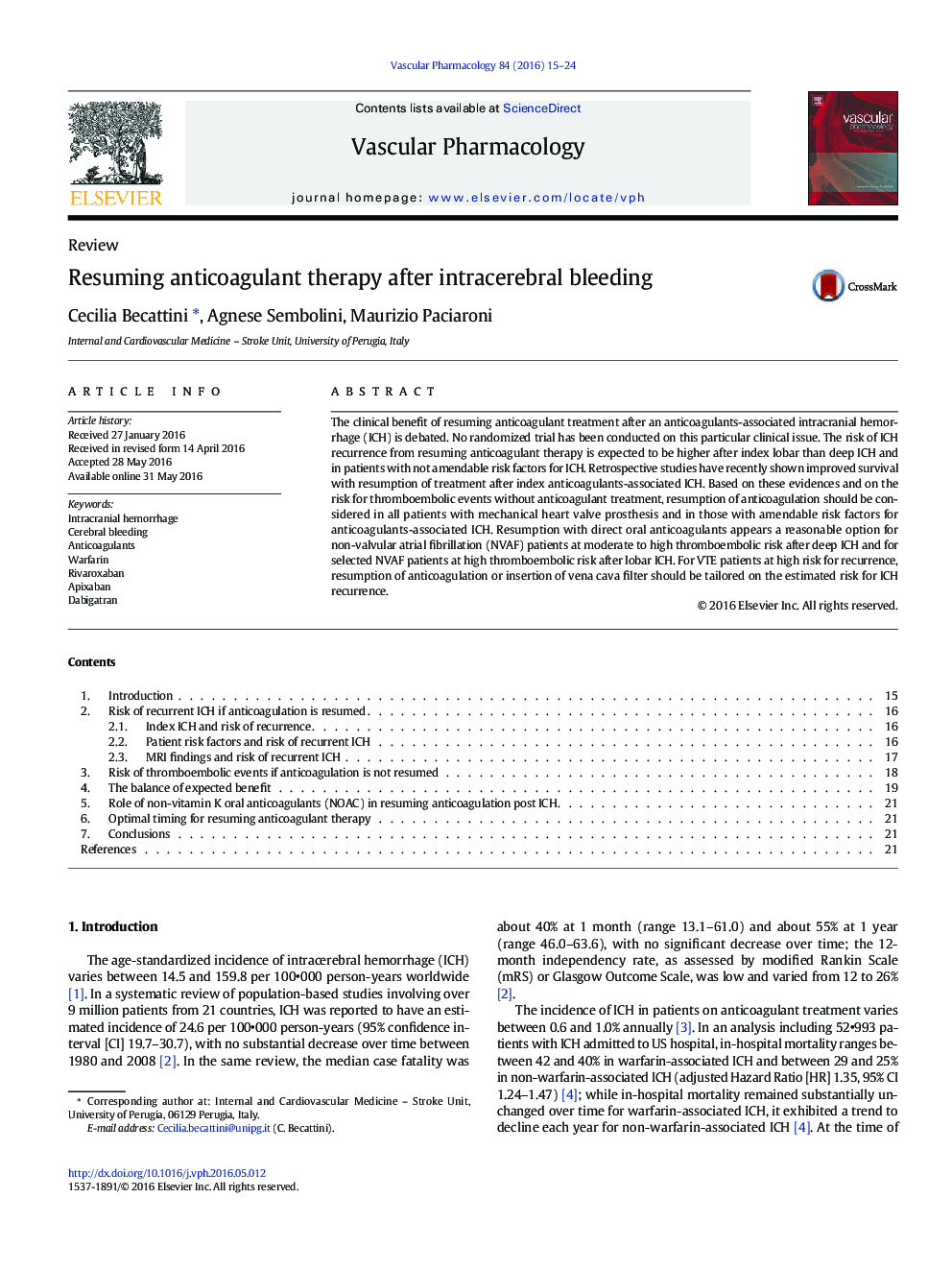| Article ID | Journal | Published Year | Pages | File Type |
|---|---|---|---|---|
| 2573901 | Vascular Pharmacology | 2016 | 10 Pages |
The clinical benefit of resuming anticoagulant treatment after an anticoagulants-associated intracranial hemorrhage (ICH) is debated. No randomized trial has been conducted on this particular clinical issue. The risk of ICH recurrence from resuming anticoagulant therapy is expected to be higher after index lobar than deep ICH and in patients with not amendable risk factors for ICH. Retrospective studies have recently shown improved survival with resumption of treatment after index anticoagulants-associated ICH. Based on these evidences and on the risk for thromboembolic events without anticoagulant treatment, resumption of anticoagulation should be considered in all patients with mechanical heart valve prosthesis and in those with amendable risk factors for anticoagulants-associated ICH. Resumption with direct oral anticoagulants appears a reasonable option for non-valvular atrial fibrillation (NVAF) patients at moderate to high thromboembolic risk after deep ICH and for selected NVAF patients at high thromboembolic risk after lobar ICH. For VTE patients at high risk for recurrence, resumption of anticoagulation or insertion of vena cava filter should be tailored on the estimated risk for ICH recurrence.
Graphical abstractFigure optionsDownload full-size imageDownload high-quality image (49 K)Download as PowerPoint slide
